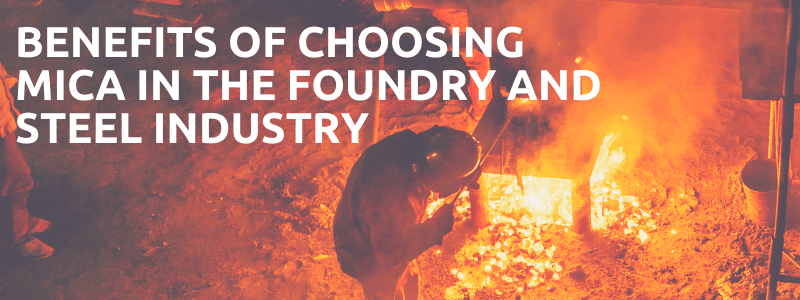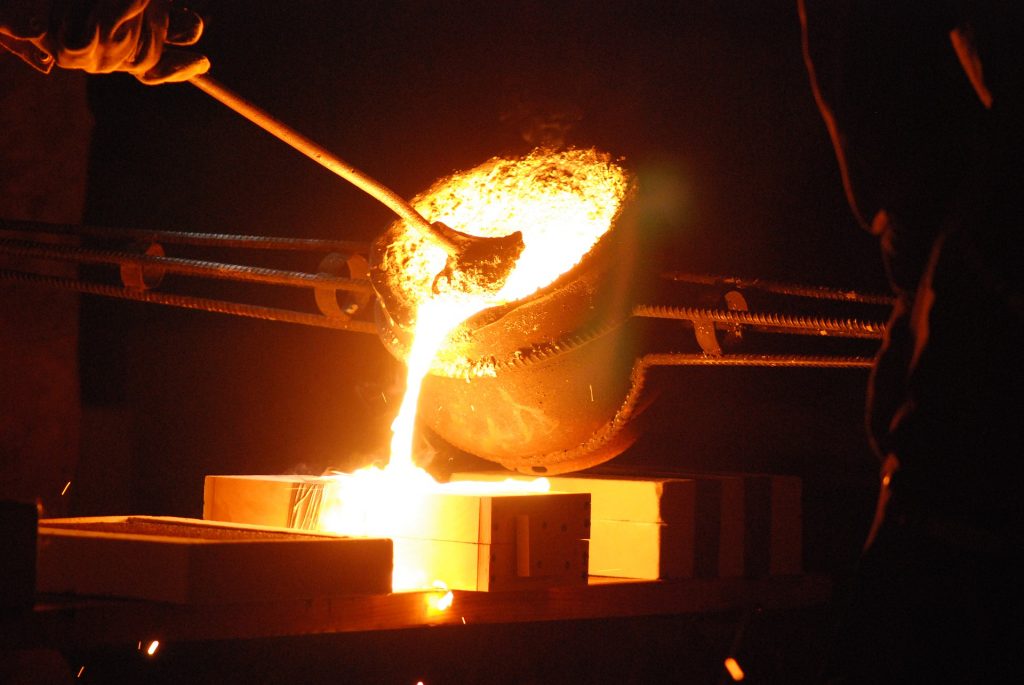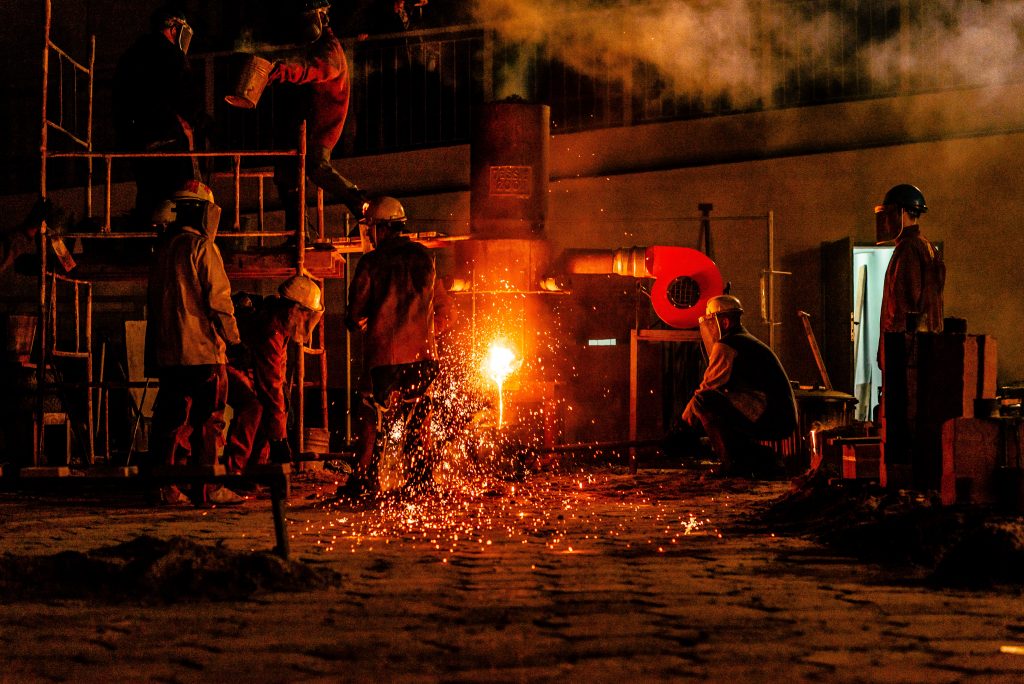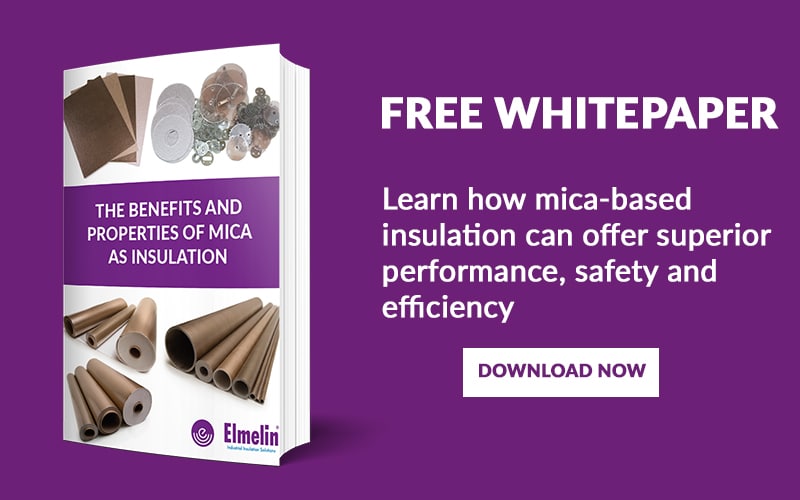
Benefits Of Mica Insulation In The Foundry & Steel Industry
As foundries continue to evolve, new technology and safety measures are rapidly being adopted. Our foundry and steel mica insulation materials are an example of this evolution, now playing an essential role in supporting the foundry processes.
We here at Elmelin are closely tied to this industry by providing a range of mica laminates and microporous insulation products to assist with foundry processes and protection.
Contemporary Foundry & Steel Industry
As furnace technology developed over the years – it moved away from wood to coal to coke as fuel. Then saw the development of the Cupola furnace in 1720, followed by the crucible process in the 18th century.
Later, the electric arc furnace and more importantly, the electric induction furnace were both introduced. These are most often found in modern foundries.
Today, the mechanical designs we make use of, from washing machines to automobiles are manufactured using metal parts that are created in the casting process.
In the era of modern manufacturing, several manufactured goods require metal castings for component parts – with the automotive sector posing the biggest market segment.
Mica is a high-performance insulator and has certain technical advantages for the foundry and steel industry. It extends the life of linings by acting as a superior slip plane allowing free movement through expansion and contraction and thus, reducing the chances of cracks appearing.

Dielectric Strength of Mica Insulation
The dielectric strength of material measures the electrical strength of the material. This is defined as the maximum voltage required to make an insulator become electrically conductive. It is expressed as Volts per unit thickness.
Here at Elmelin, we have worked closely with the foundry and steel industry, to whom we provide a range of mica laminates and microporous insulation.
Mica is the product of choice for this industry due to its exceptional dielectric properties and its wide use in the foundry and steel industry. Mica is particularly effective for applications such as insulation of induction furnaces.
Mica’s dielectric strength is also significantly higher than that of other materials often used for industrial insulation.
Mica serves various advantages as an industrial insulator material because it is versatile and adaptable. Whether in a rigid or flexible form, it offers different solutions in contrasting situations and settings.
Our product range serving and supporting the foundry and steel industry includes pure mica rolls, mica combi laminates and mica glass. These products ensure a superior dielectric barrier and optimum operational efficiency in a range of foundry processes.
The glass mica range has a reinforced layer of glass making them less prone to tearing and are also practical for applications including larger furnaces.
Insulation To Withstand High-Temperature Environments
Consistent thermal management is essential for heat processing in metal melting applications. We at Elmelin have a range of products that are specifically designed to address the key thermal management issues.
In its basic state, phlogopite mica remains stable at high temperatures up to 1000 °C. Elmelin’s product range, Elmtherm, is a high-performance microporous heat insulation material.
It uses micro-pores to minimise thermal transfer by convection while providing highly efficient insulation. Its infrared opacifiers also reduce the transmission of heat by absorbing and reflecting heat radiation. Elmtherm composite materials can withstand temperatures up to 1600°C.
Safety is also paramount, which is why we have developed Elmesh to act as a sensor for coreless induction furnaces. This laminate combines stainless steel mesh and mica layers. It can identify if there is danger of metal penetration close to the induction coil.
This provides an indication that the crucible is starting to wear thin and in turn acts as part of the furnace’s early warning system. This is especially beneficial when a foundry is processing difficult materials such as scrap metal and nickel alloys.
In addition, Vapourshield, a mica-based laminate product provided by Elmelin prevents vapour penetration to the induction coil. It can also be used to prevent the build-up of zinc or other metallic residues which cause short-circuits in the foundry equipment.
Vapourshield also acts as a metal penetration alarm and barrier, triggering the advance shut-down of the furnace and preventing potentially catastrophic damage.

Is Mica Insulation Expensive?
Choosing the right furnace lining is essential for keeping furnace maintenance costs down as well as avoiding downtime and maintaining efficient production levels.
Due to the large reserves of mica, which are found all over the world, especially in Africa, South America, Russia, India and China, mica is a relatively inexpensive mineral. However, the price varies depending on the quality of the mineral mined.
The relatively inexpensive nature of the mineral means mica insulation is one of the most cost-effective insulation materials used in the foundry and steel industry.
Is Mica Easy To Work Within The Foundry Environment?
Furnaces are regularly relined to protect its components and the materials being processed. In this case, mica is an ideal material due to its durability and flexibility.
Traditionally, iron and steel furnaces have used refractory ceramic fibre (RCF), also known as aluminosilicate wool for relining. Whilst this material can withstand the high temperatures generated in furnaces, there are environmental safety concerns over this material and in Europe as it is classified as a category 1b carcinogen.
Older furnace models may provide an ideal upgrade opportunity. Mica represents a safe alternative to traditional solutions and has excellent slip-plane qualities as a furnace lining.
Likewise, glass-reinforced mica is less likely to tear thereby ensuring its effectiveness as a relining material.
Mica also acts to protect the coil grout and the casting. Overall, this helps with increased furnace throughput since the coil grout then requires less patching. Furthermore, mica does not stick to the grout, which makes it easy to remove when required.
Bio-Soluble By Recycling
Our products are available with bio soluble and non-hazardous insulation paper bonded to the mica. This makes the products robust and recyclable.
These are essential factors as we move towards an environmentally friendly economy where the heavy industry is susceptible to fines for unsanctioned disposal of potentially hazardous material.
Get In Touch
If you have any questions about using mica insulation for the foundry and steel industry, or if you would like to know more about our products, you can contact us on +44 208 520 2248 or e-mail sales@elmelin.com.

